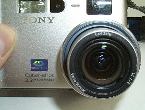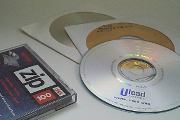Support | Learning Center | General Imaging Info
Avoiding Loosing or Damaging your Photos
Be careful when transferring images from your
camera to your computer
Do not delete files from the camera until you are sure they are downloaded
to you computer. It is easy to make mistakes when copying files from the
camera to the your computer. Make sure to check that the files are copied
correctly before you clear the camera or memory card.
To ensure a successful transfer, follow these steps: First run the software
to transfer your images to your computer. If no error messages are displayed
then use Photo Explorer to visually check that all the images are there.
You will need to look for the folder where the images were transferred.
If you use Photo Explorer's Digital Camera Wizard you will be taken right
there after the transfer is complete.
Be careful not to damage the original files
The files you download from your digital camera are the only copies of
your photographs. Be careful to keep copies of the originals. Many editing
operations can damage the original data, sometimes in subtle ways. Be
organized in the way you file and backup data from your camera so you
can keep your memories safe!
Be careful when editing JPG files
Most digital cameras store images as JPEG (.JPG) files. In these files
the image data is highly compressed. It is easy to loose image quality
even if you open and save a JPG file even if you do not do any editing,
because the data will be recompressed when it is saved. Some loss of image
quality occurs each time the image is saved whatever compression setting
is used. To avoid overwriting your original files save them as copies
in a different folder from the original photographs.
Use CD-R or DVD to backup your data
Many people store traditional photographic negatives for many years so
that future generations can look back on family memories or historic events.
They can also be used to create new prints if the original prints are
lost or damaged. Negatives keep for a long time. Treat your digital photography
the same way. Unlike traditional photographic materials the image quality
will not degrade over time, but you must be careful to store the file
safely. Digital storage devices have limited lifetimes and can fail. Do
not keep all your photographs on your computers hard disc. Although it
does not happen often hard discs can fail and when they do the data cannot
usually be recovered. They can also be accidentally overwritten. Make
regular backups! Tapes and floppy discs can be used but have rather limited
life, only 5-10 years. CD-R (recordable CDs) on the other hand should
last 100 years if stored carefully. CD-RW discs do not quite last so long,
but should be okay for 10's of years. It is usually possible to store
hundreds of digital camera pictures on one CD. Since it is easy and cheap
you can easily make copies.
Back
to General Imaging Info
|


